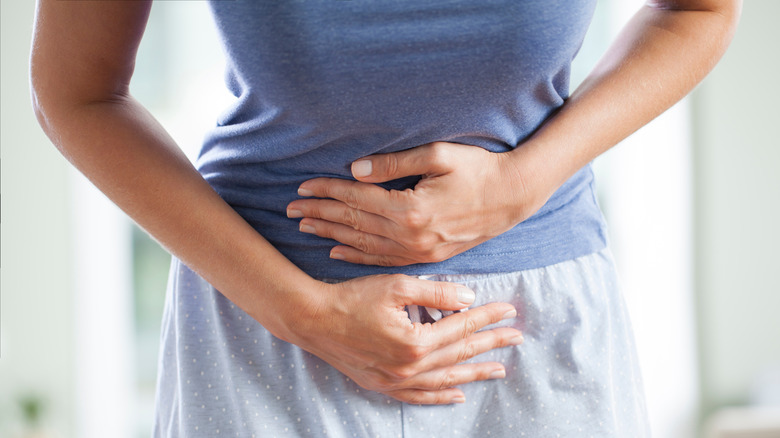Symptoms Of Gallbladder Issues You Shouldn't Ignore
The gallbladder is a pear-shaped organ that sits under the liver (via MedlinePlus). Its job is to store bile, a substance that helps the body break down and digest fat from food. Bile is produced in the liver, and the gallbladder delivers it to the small intestine when it is needed for digestion (via Healthline). This process allows vitamins and nutrients to be absorbed into the bloodstream.
Any diseases that affect the gallbladder are known as gallbladder disease. These often are the result of inflammation, infection, or gallstones — hardened deposits of digestive fluids that can form in the gallbladder (via Johns Hopkins Medicine). Symptoms of gallbladder disease include pain in the mid-to-upper right part of the abdomen, nausea, vomiting, fever, chills, chronic diarrhea, dark urine, light-colored stools, and jaundice (yellow-tinted skin). Don't ignore these symptoms, as they can be a sign of a serious problem with your gallbladder. See your doctor right away to determine what is going on.
Diagnosing and treating gallbladder issues
Your doctor can run a number of tests, including blood tests, an ultrasound, or other imaging tests to see if you are experiencing issues with your gallbladder (via Mayo Clinic). The treatment of gallbladder disease depends on its cause. In some cases, oral medications can dissolve gallstones, but this process can take up to several months or even years to dissolve gallstones completely. What's more, if treatment is stopped, gallstones will likely form again. As such, medications aren't commonly used. A more common line of treatment is surgery to remove gallstones or the entire gallbladder.
If the gallbladder needs to be removed, the surgery can normally be performed laparoscopically, or through a tiny incision, as an outpatient procedure (via Healthline). It's important to note that you do not need your gallbladder to live. Having it removed will not affect your ability to digest food, though it may cause some temporary gastrointestinal side effects.


